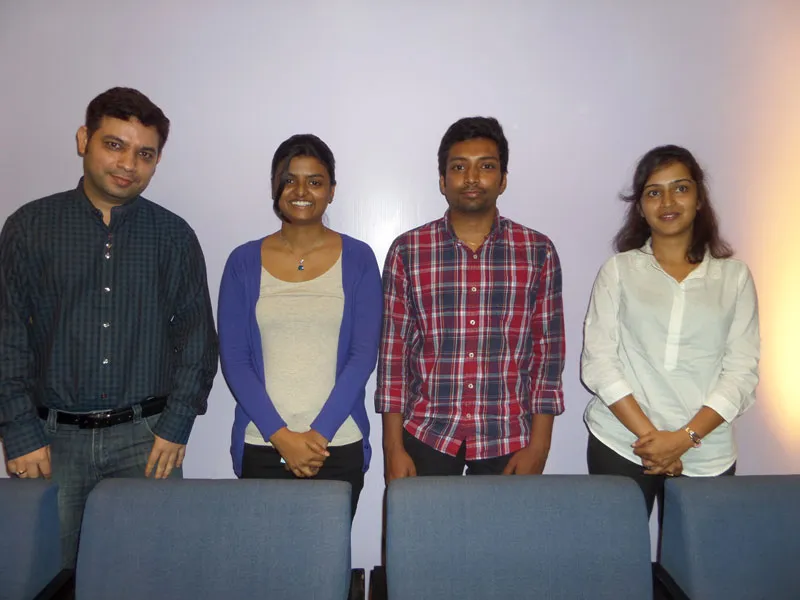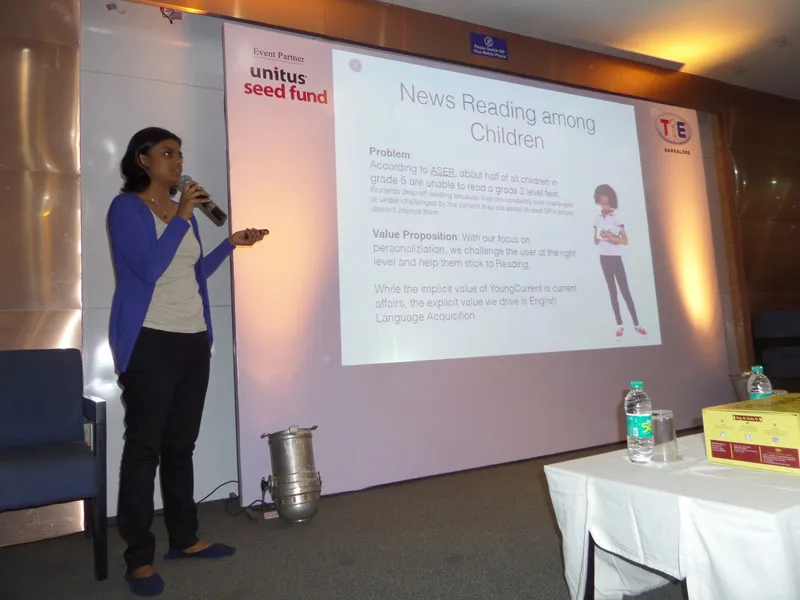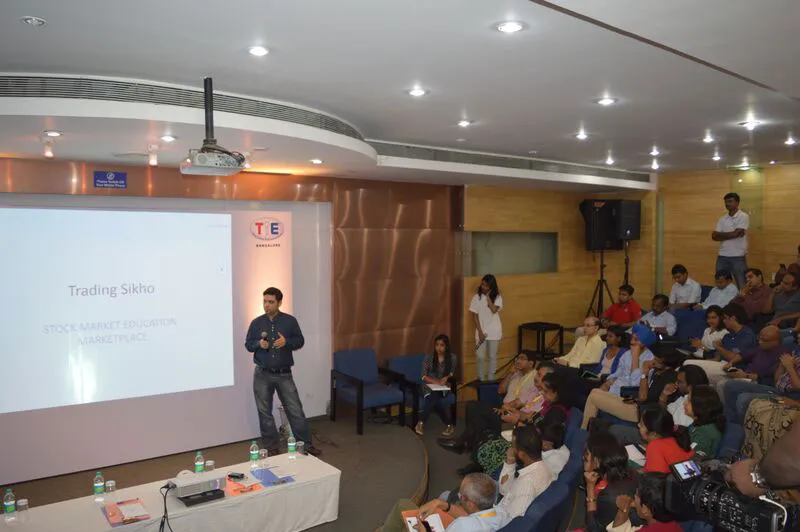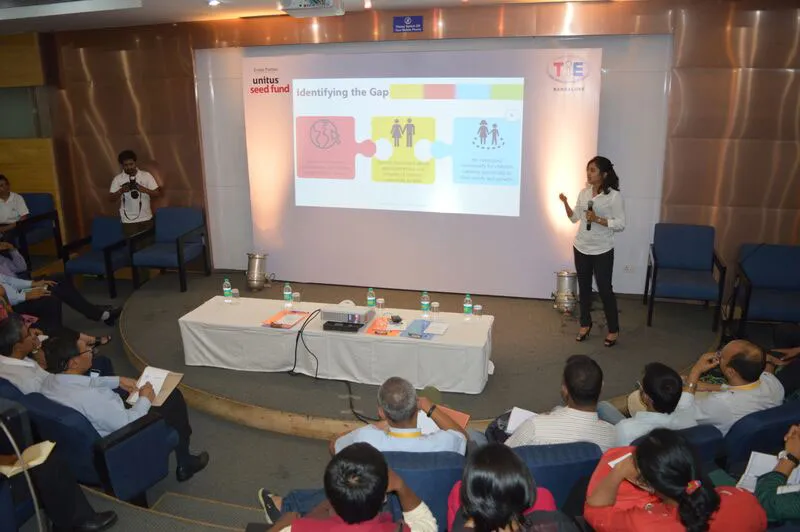Six ed-tech startups showcase their businesses at EduThon II
The market for education startups out of India is becoming hotter with new players in segments as diverse as career counselling, child-friendly content creation, scholarly publishing and classes for stock trading populating the space.

Image Credit "ShutterStock"
TiE Bangalore and Unitus Seed Fund recently held a three-hour EduThon event featuring six such ed-tech startups: Eureka Career Kits, Hash Learn Now, Young Current, Typeset, Trading Sikho and Spicetoons. (See my earlier coverage of the first TiE Bangalore EduThon: Top 10 tips for education startups.)
The three-hour event featured a product showcase, expert panel discussion, and a matchmaking session between startups and resource providers. The expert panel included Srikrishna Ramamoorthy (partner at Unitus Seed), Madan Padaki (Co-Founder and CEO of Head Held High Services), Srikanth Iyer (Co-Founder and CEO, HomeLane, and venture partner, Unitus Seed Fund), Muralidhar S. (Co-Founder of MeritTrac) and Mohan Rajamani (Founder of Learn Hive).

Eureka Career Kits, founded by Mehar Zariwala, has developed a testing kit which helps determine school children’s career aptitude. Based on experiential learning, it makes inferences and suggestions on what types of intelligence the student has a leaning towards, and what career paths would be best for him/her for eg. maker, player, thinker, innovator, storyteller. Sold to parents, the kit helps them better plan their children’s careers and avoid potentially wrong paths.

Hash Learn Now, founded by Jaydev Gopalakrishnan, is an app-based marketplace for engineering school test preparation. It connects test-takers with tutors from IIT, BITS and other top engineering schools. It targets the gap, particularly in Tier 2 and Tier 3 cities, of affordable, personalised, on-demand and skilled tutoring services.
Gopalakrishnan says,“There are 20 lakh engineering aspirants with mobile phones but only 20 per cent of the market is organised”. The medium of communication is text chat, with the option to upload images for discussion. The average session duration is about 10 minutes. Tutors are chosen after a stringent selection process, with emphasis on communications skills. The first 30 minutes are free for students, with a subsequent charge of Rs 99 for 20 minutes of tutor interaction.

Young Current, founded by Mydhili Bayyapunedi, provides child-safe news stories for students. The online stories are aggregated from child-friendly news sources, and provide coverage ‘beyond tragedies and terrorism’. Access to the news is free, but fees are charged for extra activities and assessment reports based on comprehension tests and gamification. Digital content is currently in English, for which hundreds of readers have signed up, but the next target is Hindi news, according to Mydhili.

Typeset, founded by Saikiran Chandha, is a content management tool targeting the scholarly publishing community, which currently needs to use sophisticated but hard-to-learn tools like LaTex. Online formatting services are expensive, and automated tools are a better option. The global journal publishing industry is worth USD 25 billion, and the digital tools constitute a USD2 billion market, according to Chandha. The SaaS model for Typeset has so far attracted 3,500 subscribers in two weeks, and the founder has pitched at events like AngelHack and Startup Chile as well.

Trading Sikho, founded by Gaurav Wadekar, is a marketplace for education on stock market trading. Gaurav is, himself, a stock market trainer, and wants Indians to get beyond the perception that you need to learn stocktrading only after you have lot of money.
“As compared to the US and Europe where 25-30 per cent of savings are in the stock market, the figure is only 2-3 per cent in India,” says Gaurav. The site offers trainers the option of listing their courses and fees (from a few hours to a few days in duration), and learners can sign up for training in classrooms (with e-learning as a future option).

SpiceToons, founded by Neha Kulkarni and Ravi Raghavan, offers a community blend of educational games and entertainment for young children. Seeing that kids are using smartphones at a younger age these days, there is a pressing need for a secure environment for collaborative activities. The founders claim the site already has around 50,000 users in India. Similar sites like Moshi Monster (Japanese), Taomee (Chinese) and Disney’s Club Penguin (English) already exist for other markets. SpiceToons has found a powerful channel partner in Britannia, with access codes printed on its JimJam snack packets.
These six startups, chosen from over 25 applicants, will be further shortlisted for StartEdu #3, an initiative by Unitus Seed Fund and accelerator Sylvant to identify, mentor and invest in high-potential education startups. Winners of StartEdu # 3 will win a Rs. 5 lakh prize and investment of up to Rs 1 crore. Education-focused business accelerator Sylvant is a co-convener of the competition, and is a founding member of Unitus’ Speed2Seed Program.
The winner of the earlier round, StartEdu #1, was a Hubli-based startup with a secondary school science app called LabInApp. The founders subsequently closed seed-funding from Unitus Seed Fund. “We expect to have our app active in 100 schools by the end of the year,” said Co-Founder Pavan Shinde at the TiE event.

The six startups who pitched at EduThon II were commended by the expert panel for their passion, focus and clarity of business model. The panellists also offered data points on the education market of India, which is worth USD 100 billion annually, 60 per cent of which is accounted for by the K-12 sector. Karnataka’s budget for schools is Rs 12,000 crores, of which an estimated Rs 9,500 crores is for teachers’ salaries. Test preparation is a USD 8-10 billion market.
The panellists also offered numerous tips to aspiring founders in the audience, which can be aggregated into a useful question bank (see my earlier compilations of question banks for founders and app developers).
- What is the duration, number and frequency of learner-teacher interactions?
- Are you providing ‘must have’ content and services or ‘nice to have’ options?
- How many potential and current customers have you spoken to, and how would you categorise and cluster them?
- How exactly do you plan to sell to schools? Selling to schools is easy, but collecting payment is hard!
- How many paying customers do you have, and when will the rest pay?
- What is the range of price points and revenue sharing agreements?
- Who is the real buyer of the product, and how are benefits spread across the value chain?
- Does a pre-paid or post-paid model work best for your offering?
- What are the regulatory and legal issues involved with respect to copyright, licensing, and so on?
- How will you increase awareness about your product? What kinds of sampling techniques work?
- How will you differentiate from current competitors, and guard against future ones?
- What is the attractor to bring audience to your content, and what is the incentive and outcome?
- Are you primarily focused on online, offline or hybrid solutions? What SWOT analysis have you done to compare these offerings? Digital platforms scale well, but it is important not to ignore classroom-based solutions and physical infrastructure.
- Who are your channel partners? Learn how to map out and work with the whole ecosystem: teachers, principals, deans, administrators, tutors, government, publishers, global players, tech vendors, media and brands.
- What are your metrics for success as a company, and as a founder?
The event ended with a ‘matchmaking’ session, with startups announcing what they were looking for and the audience pitching their own services. Growth hacking, tech services, mobile app development, and financial expertise were all on offer. “I can offer business skills. I am a Gujju,” joked one attendee, bringing the event to a close.
The growing youth population in India, which is expected to increase by 125 million in the next decade, calls for urgency in improving education, skills and job prospects on a massive scale without loss of quality. To this end, EduThon gave a platform to ed-tech startups to showcase what they do and engage in interactions with investors.







